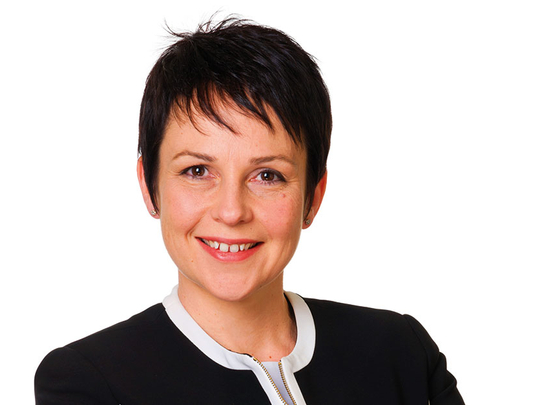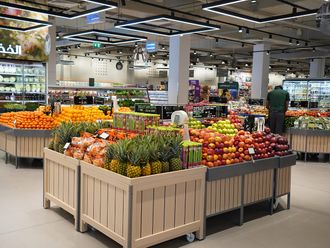
“The Gulf is of great importance to our food producers. Even though China is our biggest export destination, the Gulf is a significant focus for us and is comparable in scale to Japan which is one of our oldest markets where we have had relationships going back a hundred years,” said Jaala Pulford, the Government of Victoria’s Minister of Agriculture.
“We see a great deal of potential in the Gulf for three of our food sectors: meat which led the way in the beginning and is still the largest category in the Gulf markets; dairy which has become more important over time; and horticulture (consisting mainly of nuts and fruits) which has grown fivefold recently,” Pulford said in an interview with Gulf News in Melbourne.
“We regard the UAE and its Gulfood exhibition as an access point to other world markets, in which we are very active. We are looking with great interest the development of greater links into Africa which will build on the relationship that has evolved over a long time in the Gulf, which is an important central hub,” said Pulford.
The minister explained that the federal government leads on trade negotiations and the role of the Victorian state government is to compliment that work by focusing on the non-tariff and technical aspects of achieving access, like for example understanding what treatments are enable access protocols. “Of course, we also make time to encourage the federal government to focus on what is of value to Victoria,” said Pulford.
“Our trade aspirations in the Gulf are much more around getting our products in front of buyers,” said Pulford, describing how the Government of Victoria works to support the food producers’ efforts to export. “We have all of our producers focused on the highest quality and standards. We are proud of what our producers make. We have a lot of our smaller producers producing great value products. I do not see doom and gloom”.
Pulford is responsible for agriculture across the State of Victoria, where this year she is implementing a new compulsory electronic tagging system for all sheep and goats, which adds to the system for cattle that has been in place for 12 years. “All lambs and goats born in 2017 and thereafter onwards will have mandatory electronic ear tags, so that the farmers can have improved flock management, productivity and profit maximisation, but it also means that livestock can be traced throughout the food chain,” she said.
“This investment in traceability in the meat industry that will also produce more security in the dairy industry. We have had electronic tagging of cattle for 12 years, but the importance of that in protecting our bio-security was undermined by a very big gap of 10 million other animals that were not tagged, which will now be stopped.
“In the first instance this is about getting the strongest bio-security that we can, but it also allows a wealth of data to be accessed and some of our younger or more innovative famers are interested in exploring the on-farm benefits that come from having all that extra information. But it is only a matter of time before consumers will be able to trace what that are eating back through the production chain and find out where their meat has come from,” said Pulford.
Pullford pointed out that water shortage had forced some changes in agriculture as the required reforms in the water market and pricing policies had caused some producers to think about switching to higher value production. “This led to new investment, for example in almonds in northern Victoria, which has given us some new products to export,” she said.
Exports from Victoria’s horticulture category have grown five times in recent years, and in addition to the nuts, there has also been in increased focus on trade as Victoria recently negotiated the beginning of stone fruit access to China, which the government expects will expand.
20 year anniversary for VicGov Business Office in Dubai
The Government of Victoria set up its busy Victorian Government Business Office (VGBO) in 1997 to drive trade and investment links with the region, which over 20 years has seen Victoria’s annual exports to the Middle East and North Africa (MENA) region grow to A$ 2.49 billion (Dh 2.48 billion).
The VGBO covers trade, tourism and investment links with the entire Middle East region, with which “Victoria has had a long-standing and ongoing commitment which has been established through a sense of deep trust and a mutually beneficial relationship that has been harnessed for 20 years,” said John Butler, Commissioner for the State Government of Victoria in the Middle East, Africa and Turkey.
“There are many countries in the MENA region that have played a vital role in the Victorian economy as both a source of imports and as an export destination. We can only see our relationship strengthening further as we grow even closer together and develop the successful two-way collaboration between Victoria and the region.”
The VGBO also supports Victorian service providers, particularly in the building and construction sector, as well as education with some colleges coming to the MENA region over 6,300 students from the MENA region enrolling in Victorian education institutes last year, the largest group of who were from Saudi Arabia.













